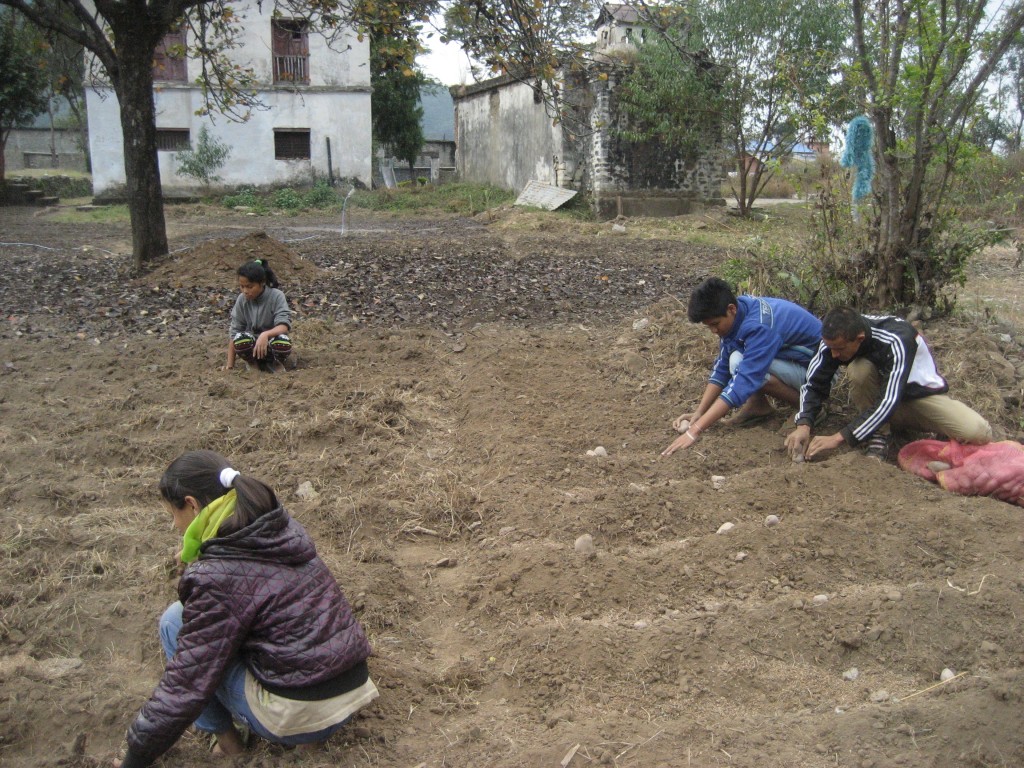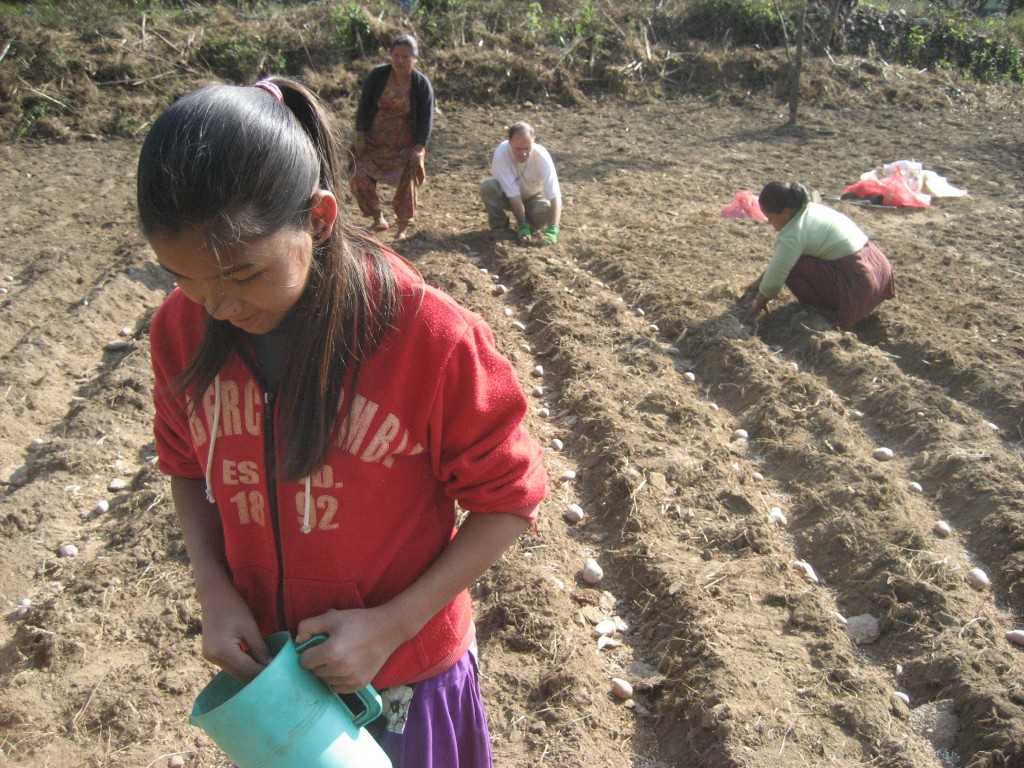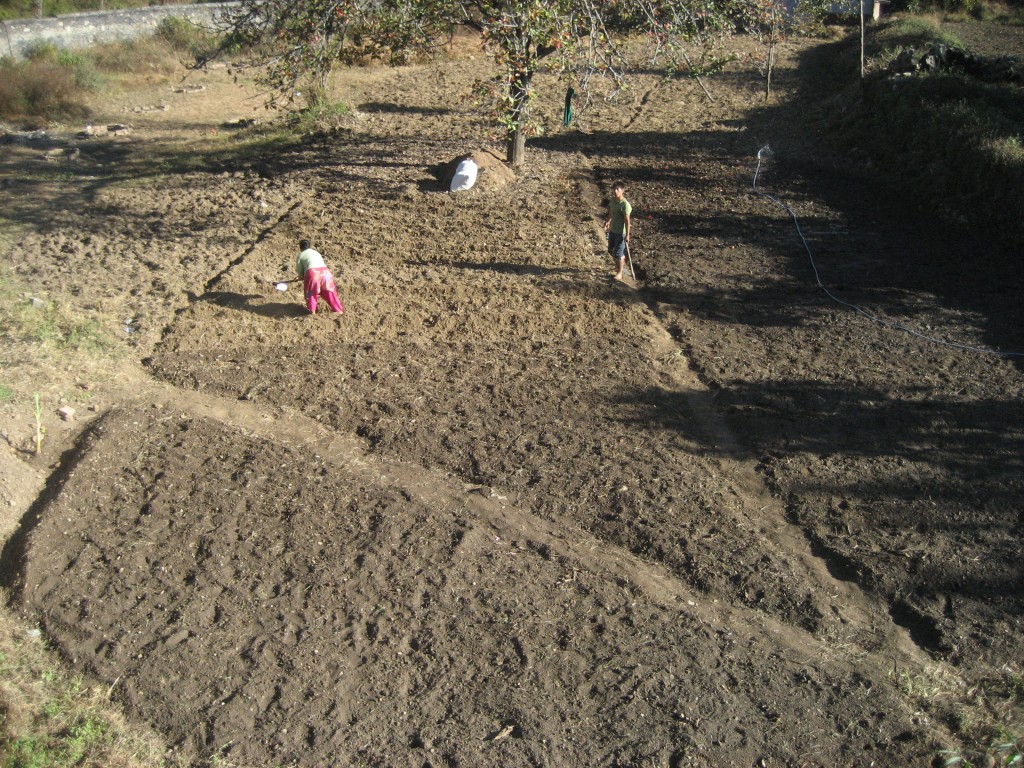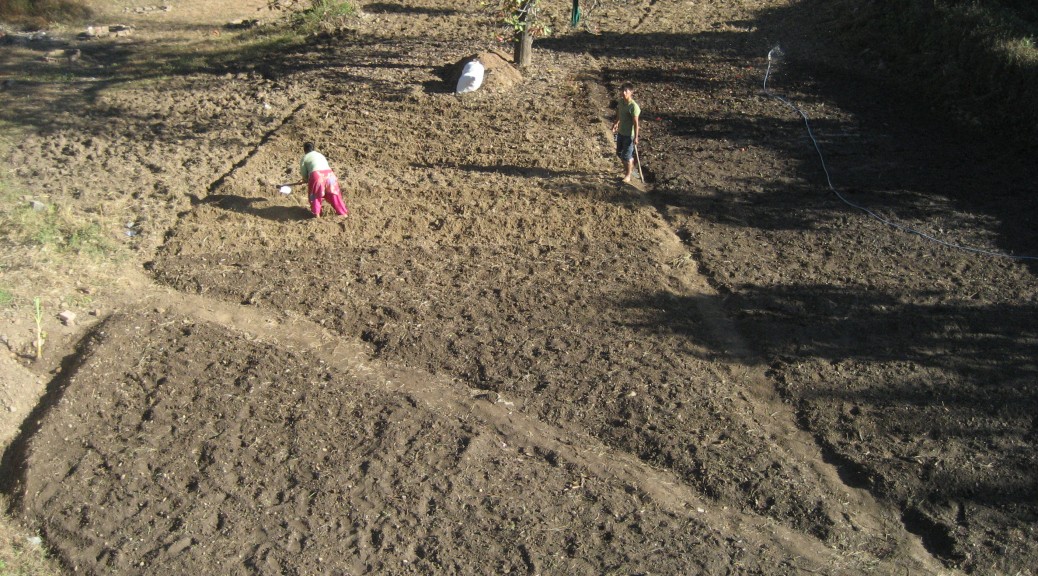In the third terrace of the garden, the largest of all, we grow three types of vegetables during the year. In June we plant corn, in September beans and in December potatoes. So now time for potatoes!
This time we have decided to cover more area than ever with potatoes. Will we succeed? First we get rid of the huge grasses occupy the entire field, some are really annoying and leave your hands and clothes covered with spikes.
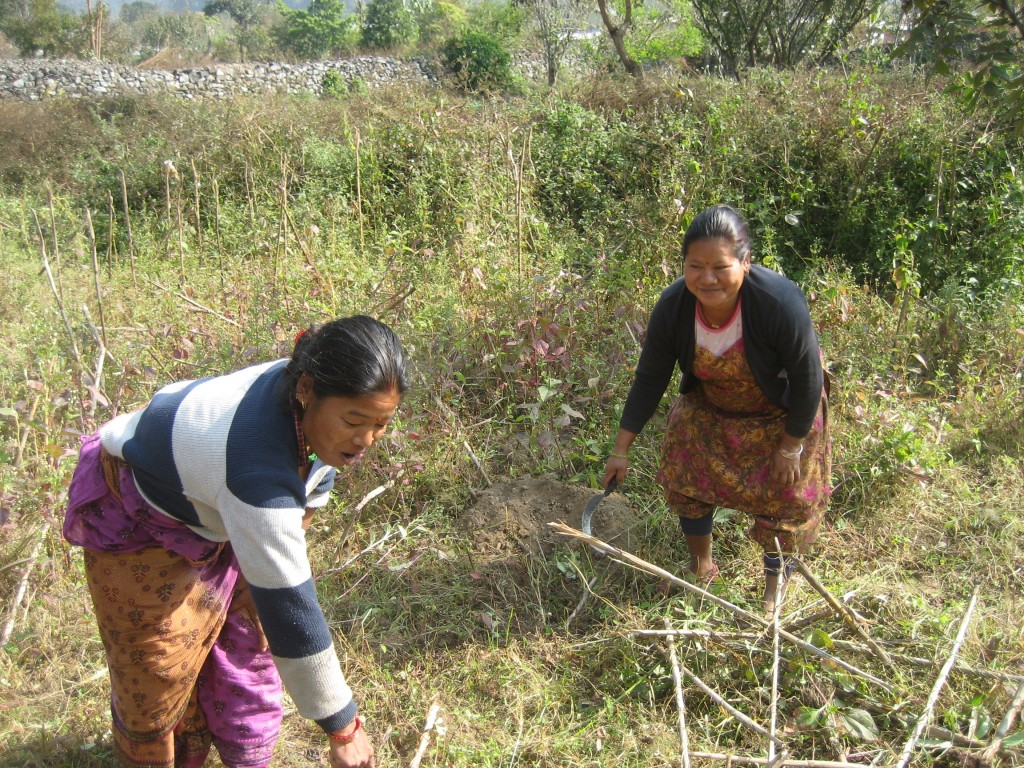
The second step is to plow. So we called the “man of the oxes”. After trying few days, finally, one morning, he appears. Everybody is happy! But at twelve o’clock he has to go to another field… but he has almost finished the work, we will do it ourselves.
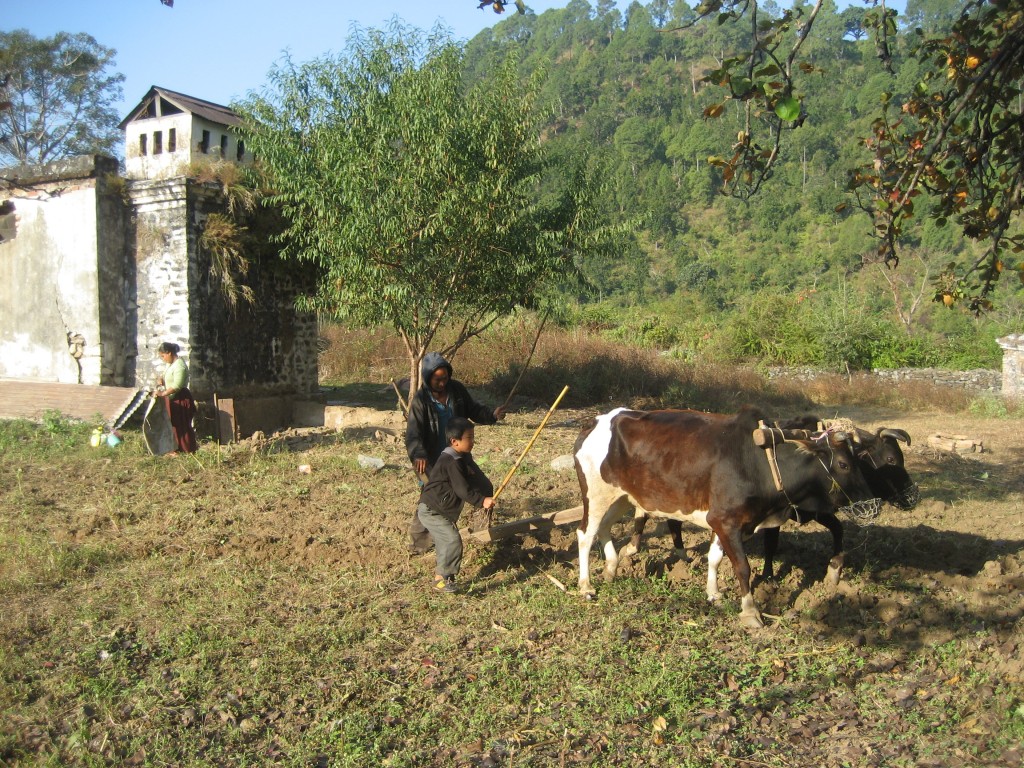
On Saturday there is a group of children who help in the kitchen-garden and extend a bit the area to plant potatoes. Everyone is happy enough. For now we will leave it like this.
Is it time to plant? No… we need to put fertilizer so potatoes can grow well… For now we have some buffalo compost, but it will not last long.
The next day we go in search of fertilizer, this time chicken fertilizer, it is more expensive, but they say it is better. We decide to go to bring it ourselves. After walking for about ten minutes we arrive at a house made of mud and stone (like many of the houses), we go to the rear where there is a chicken farm. Further there is a pile of manure in rice husks. After some months we will also have fertilizer from our hens.
They give us ten sacks and two shovels and we start loading. All older children have come to help. They load the bags as much as they can, same price! Even two of the didis have come to encourage us, these two women are wonderful (all kids call them “didi” which means elder sister). Maya is very sweet and always smiles. She does not speak English but cooks wonderfully. Every day after eating we tell her “mitho chha” (the food was delicious) and she answers with a shy smile “thank you”. Beli didi is the caregiver who sleeps in the center to take care of the smaller kids. She is very energetic and has a powerful voice that can be heard from anywhere. The two women take care of their children as if they were their own kids. They are the best “didis” we could have. Children and Amics del Nepal are very lucky to have them in the children’s home, taking care of children, helping to cook, cleaning everything, helping the responsible of the kitchen-garden…
Come on! Let’s carry the sacks! Two boys per sack. We are 10 people, so we can carry five today and five tomorrow, I propose. Ashok Siwakoti, the only kid of the Children’s Home studing class 10, laughs and says that they will come back quickly for the second sack just after leaving the first. He adds slyly, “the question is whether you will also come back for the second sack…”
Once my sack is ready, Rojan and I take the sack and move. A minute later we have to change position… After ten minutes we have tried the 10 different ways to carry a sack, and we have proved that there is no good way to do it… Finally we arrive and empty the bag! It was hard, but we did it!
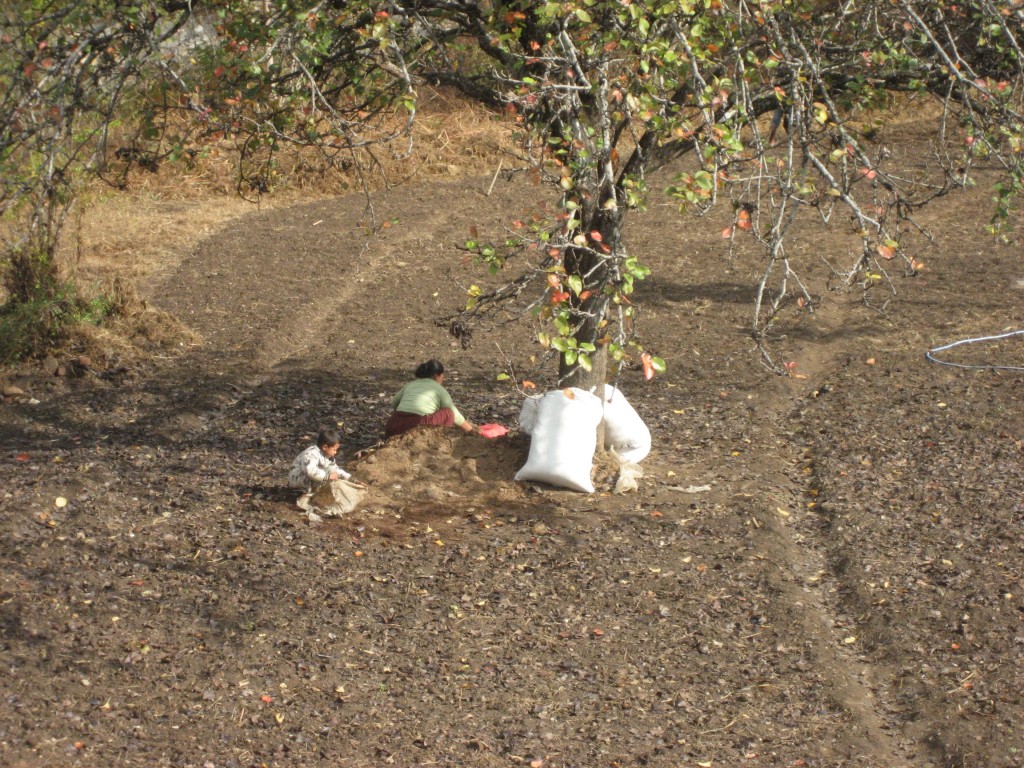
But suddenly… what???? We see two sacks with legs coming by themselves. It is dark and I don’t wear my glasses, but finally the sacks are close enough and I’m absolutely astonished. They are the two “didis”, each carrying a sack tight with a string loaded on the forehead (this road is called “namlo” in Nepali). They hadn’t come to encourage us…
Didis leave the sacks on the floor, look at me and smile. Rojan tells me: “They used to do this when they were kids… we would not be able to use “namlo” properly, you need practice for that”. I’m still shocked, Maya, a woman over 50 years, had transformed into super-woman and had loaded, apparently without effort, a sack of over 50 kg…
Now, we can plant potatoes! The next Saturday, a group of children help to plant potatoes. And after a few days with didis, volunteers and occasionally a boy or a girl who shows up to help, we have 1,000 square meters field of planted potatoes!
